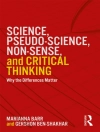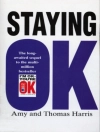This book on end of life examines how to include people with intellectual and developmental disability in the inevitability of dying and death. Comprising 17 chapters, it addresses challenging and under-researched topics including suicide, do-not-resuscitate, advance care planning, death doulas and accessible funerals. Topics reflect everyday community, palliative care, hospice and disability services.
The book proposes that the rights of people with disabilities should be supported up to and after their death. Going beyond problem identification, the chapters offer positive, evidence-supported responses that translate research to practice, together with practice examples and resources grounded in lived experience. The book is applicable to readers from the disability field, and mainstream health professionals who assist people with disability in emergency care, palliative care or end-of-life planning
สารบัญ
Chapter 1: Current and New Developments in Death, Dying and End-Of-Life Care Policies and Practices.- Chapter 2: Experience of End-of-Life Issues by People with Intellectual Disability.- Chapter 3: Suicide and Autism: A Lifespan Perspective.- Chapter 4: Advance Care Planning with and for People who have Intellectual and Developmental Disabilities.- Chapter 5: Decision-Making at the End of Life: Challenges and Opportunities for People with Intellectual and Multiple Disabilities in Residential Homes in Germany.- Chapter 6: How People with Intellectual Disability are Dying and Implications for Quality Care.- Chapter 7: Living and Dying Well with Dementia.- Chapter 8: Building shared end-of-life supports and cross-training for hospice/palliative and intellectual disability services providers.- Chapter 9: Supporting People with Intellectual Disability at End of Life: Moral Distress among Staff Caregivers During COVID-19.- Chapter 10: Accessible Funerals and People with Intellectual Disability.- Chapter 11: End-of-Life Doulas and People Living with Intellectual and Developmental Disability.- Chapter 12: Palliative and End-of-Life Care for Children with Intellectual Disabilities.- Chapter 13: End-of-life Issues and Support Needs of People with Profound Intellectual and Multiple Disability.- Chapter 14: The Process of Dying.- Chapter 15: Use of Do-Not-Resuscitate Orders.- Chapter 16: Positioning the Issues: An Agenda for Future End-of-life Research, Policy and Practice.- Chapter 17 End-of Life Resources.
เกี่ยวกับผู้แต่ง
Roger J. Stancliffe, Ph D FAAIDD FIASSIDD is Professor Emeritus, University of Sydney, Australia. His research aims to make a difference in the lives of people with intellectual disability. He co-edited a special journal issue on end-of-life, is past editor of the Journal of Intellectual & Developmental Disability, and received the AAIDD Research Award.
Michele Y. Wiese, Ph D MAPS FASID is Adjunct Fellow, School of Psychology, Western Sydney University, Australia. She is also Honorary Senior Research Fellow at the University of Sydney, and Fellow of the Australasian Society of Intellectual Disability. Dr Wiese is consulting editor to three international peerreviewed journals.
Philip Mc Callion, Ph D ACSW FAASWSW FIASSIDD FGSA Director/Professor, School of Social Work, Temple University focuses on caregiver support, dementia, palliative care and service systems. He is cofounder/ co-principal investigator/coapplicant of the Intellectual Disability Supplement to the Irish Longitudinal Study on Aging; and National Consultant on Intellectual Disabilities and Dementia, U.S. National Alzheimer’s and Dementia Resource Center.
Mary Mc Carron, Ph D MA BNS RNID RGN FTCD is Professor of Ageing and Intellectual Disability at Trinity College University of Dublin, Ireland, and Executive Director of the Trinity Centre for Ageing and Intellectual Disability and the National Intellectual Disability Memory Clinic. She is Principal Investigator of The Intellectual Disability to the Irish Longitudinal Study on Ageing- IDS TILDA, and has led extensive longitudinal research in Ireland and internationally on ageing, dementia and end-of-life issues for people with an intellectual disability.












